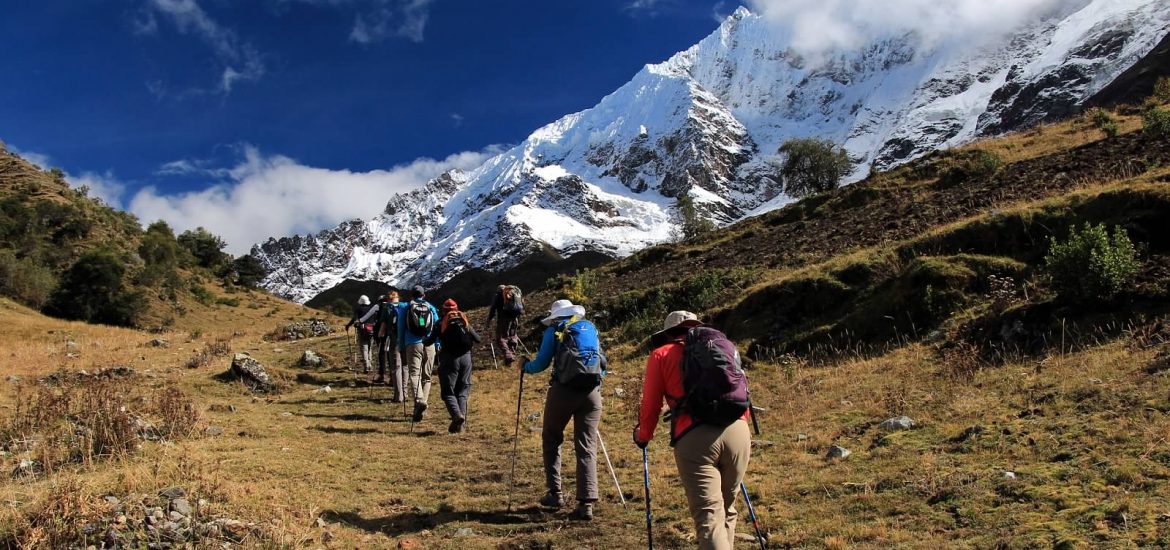We do not doubt that visiting Machu Picchu is the dream of most people who come to Peru, and it could not be different, as this historic sanctuary is on the list of the Seven Wonders of the Modern World, and over time it becomes more enchanting and shrouded in mysteries.
This ancient citadel was a planned work carried out by the powerful Inca civilization, who used the site for different purposes according to researchers. Although it is very uncertain to say exactly what its function would have been, some theories point out that this was a place of peace, in which few people lived and grew their food.
The trek to Machu Picchu is certainly a magical moment, as this entire ancient citadel provides a mix of feelings that overflow our vision, our emotions, and even our spiritual aspects. But not only the arrival but also this fascinating place can make your experience even more interesting!
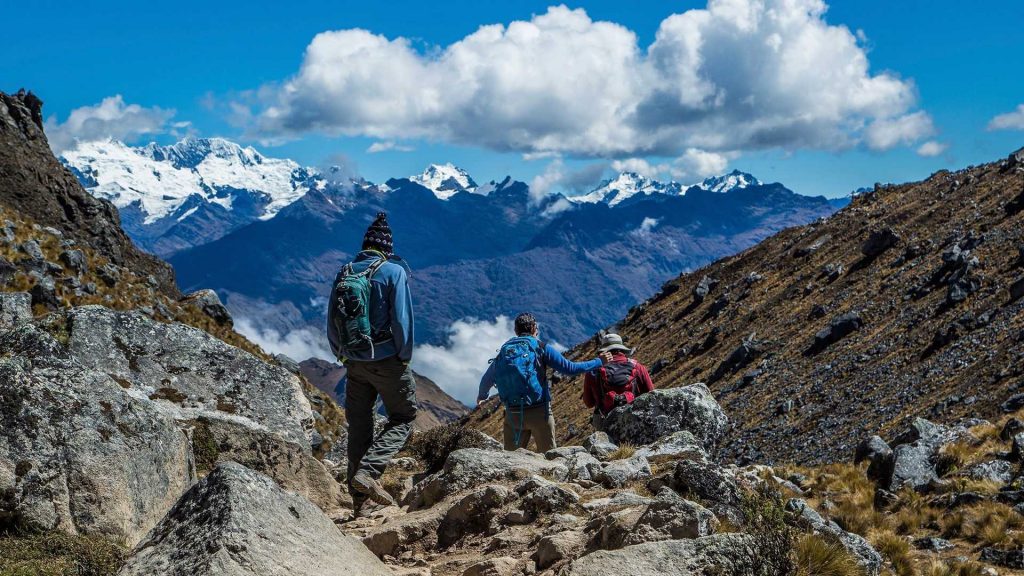
In case you didn’t know, there are a few different ways to get to Machu Picchu, among them the most famous is the train ride that leaves Cusco and passes through the Sacred Valley of the Incas and the trails that take the bravest on a long and beautiful journey. through the Andes, presenting some of the most beautiful and challenging scenarios.
Among the trails, we can point out that the best known are the Inca Trail and the Salkantay, which we will discuss throughout this article. If you are planning your trip to Peru and want to enhance your experiences with unparalleled adventure travel, you can be sure that here we will tell you everything about this route, which will awaken an immense desire to venture out!
Are you ready to enter this wonderful universe? So, read on and learn more about the Salkantay trek to Machu Picchu, its complete route, the best time to visit, and much more with this content made especially for you!
Discovering the famous Salkantay
This trail is a gem in the middle of the Peruvian Andes, without a doubt the experience of crossing its long route makes the whole trip a true adventure, but all the effort is worth it. This attraction, as you can imagine, is named after one of the highest peaks in Peru, the “Nevado Salkantay” (Salkantay Snow-capped mountain) with more than 6,000 meters of altitude and which accompanies the hikers all the way.
The route showcases diverse ecosystems, from cloud forests to tropical vegetation, providing a unique journey to Machu Picchu, and its stunning scenery feels like a dream. However, it requires physical readiness due to its difficulties, such as steep slopes, uneven ground, and high altitudes of up to 4,600 meters. Proper acclimatization and physical training are crucial to tackle these challenges and enjoy the experience fully.
The trek typically spans 4 to 5 days, with the second and third days being the most demanding as they ascend to the highest points of the route. Guides and porters accompany trekkers, offering support and guidance along the way. However, it rewards adventurers with unmatched views and an unforgettable journey through the Andean wilderness. It is a must-do for those seeking a unique and challenging trek to Machu Picchu.
Route Itinerary
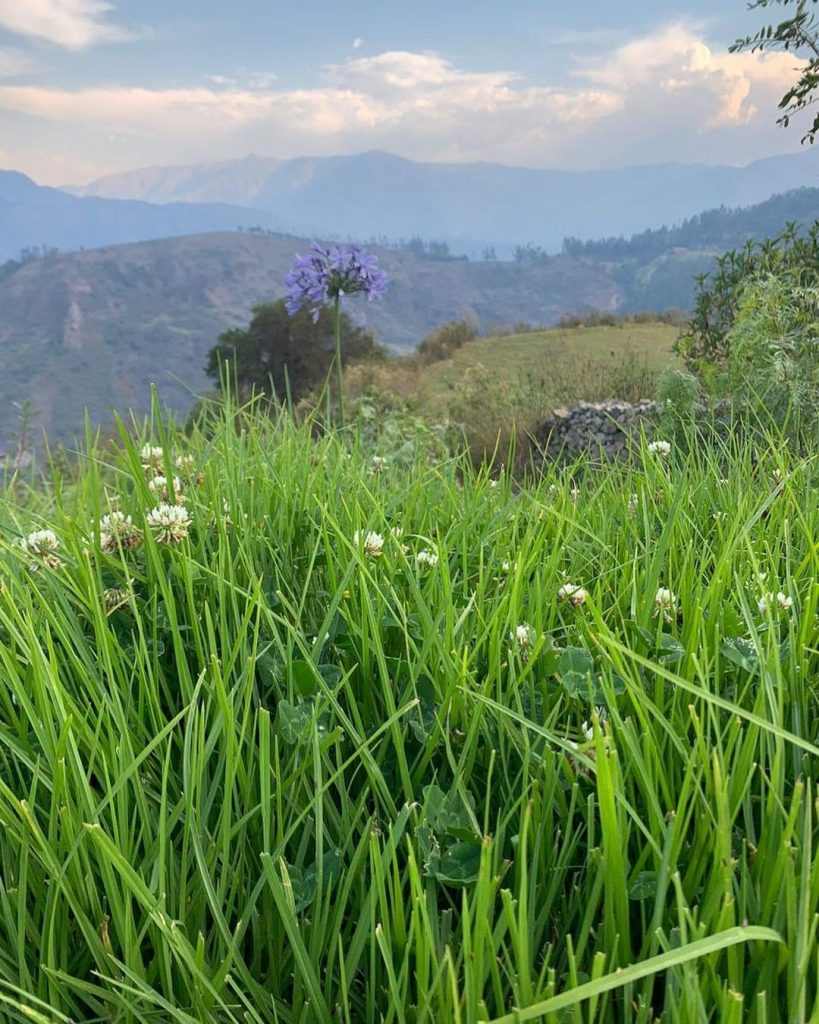
Day 1/ Cusco,Mollepata and Soraypampa
The departure takes place in Cusco, our first destination is the village of Mollepata, where the trekkers are greeted with a delicious breakfast provided to warm up and give energy for the hike to the starting point of the trail.
Leaving Mollepata, the hikers head towards Soraypampa, where the camp where the overnight stay will be located. This point on the trail is 3,850 meters above sea level and is a warm-up for the next few days, as the altitude is moderate and the hike is light.
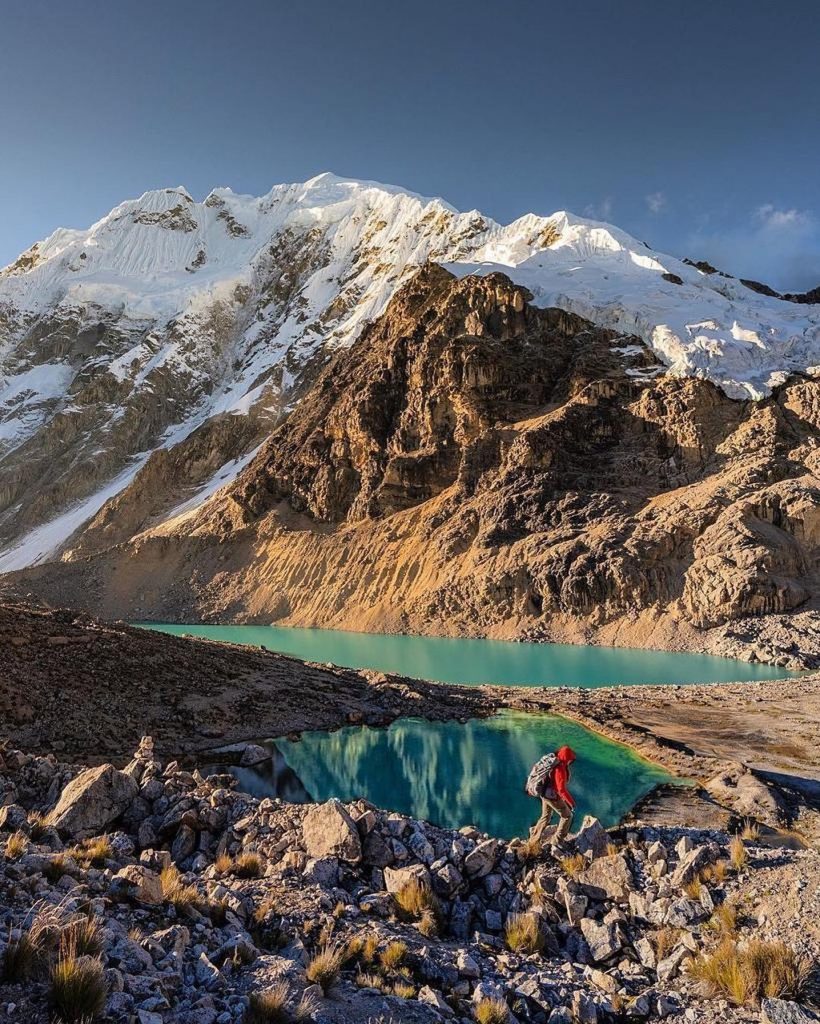
Day 2/ Soraypampa to Chaullay
The second day of the trek is considered more difficult because the highest point of the route is reached. It is on this day that the Nevado Salkantay becomes more visible and is present on the walk, which will reach 4,650 meters above sea level. We’ll camp and overnight in Chaullay, a lovely little village full of lush and green.
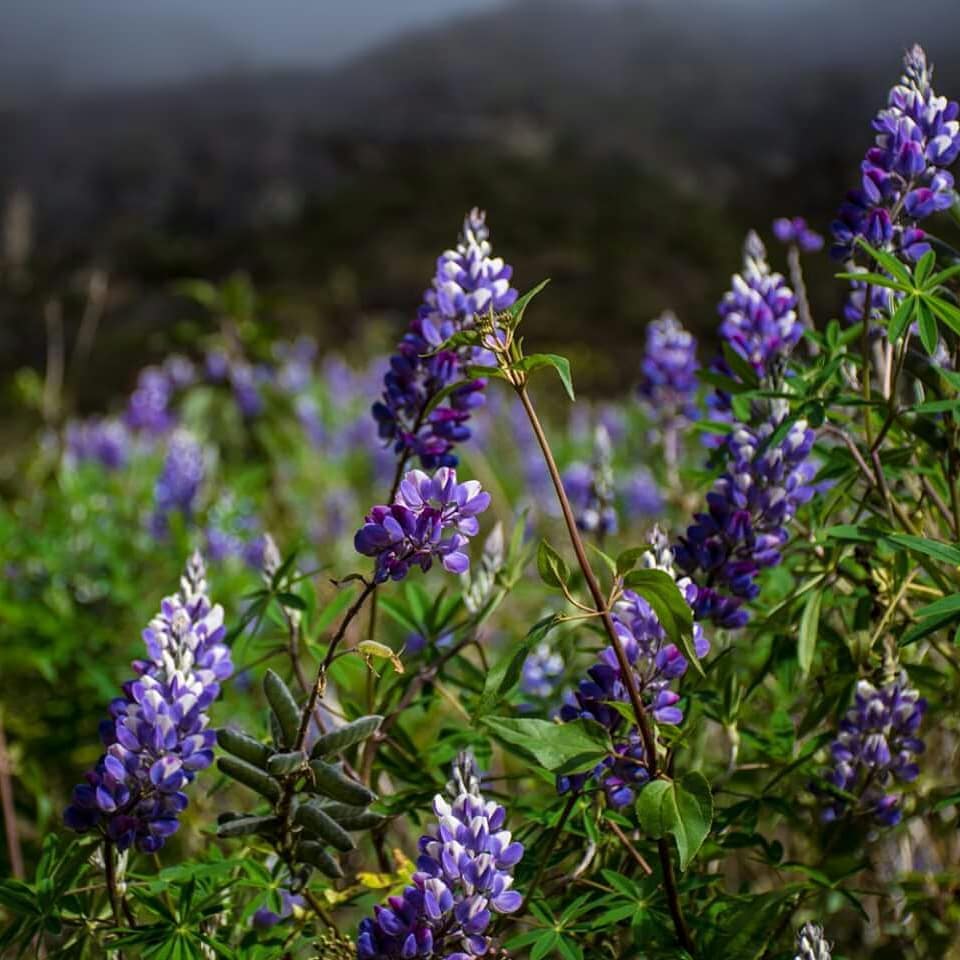
Day 3 / Chaullay to Playa Sahuayaco
On this day, the trail enters the forest enchanting all adventurers with its beautiful landscapes and the presence of numerous orchid species that are visible along the way.
In addition, the flow of the Santa Teresa River is followed and in this valley, it is possible to identify the formation of the famous thermal waters of the Peruvian Andes.
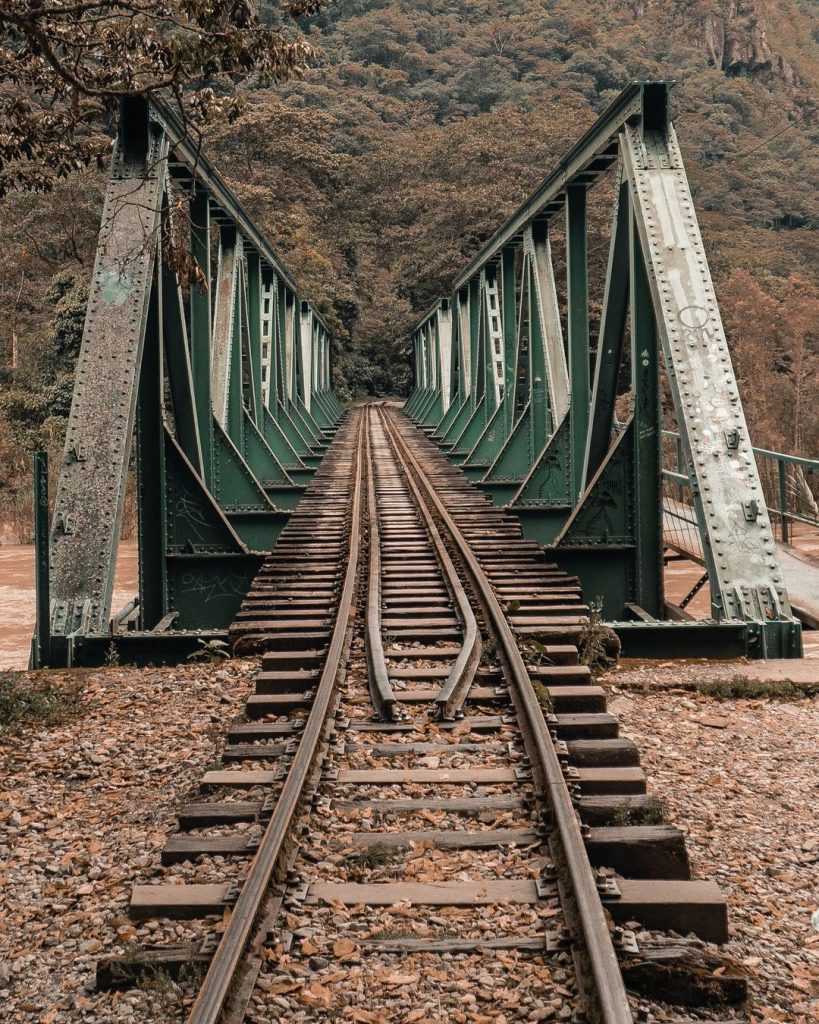
Day 4/ Playa Sahuayaco, Hidroeléctrica and Aguas Calientes.
This is the penultimate day of the route, which leads to the small town of Aguas Calientes. This part of the route will also be done through the forest vegetation and with the beautiful scenery provided by Salkantay Mountain.
The end of the trail leads to the so-called “Hidroeléctrica”, which is surrounded by a deactivated railway line that leads to Aguas Calientes, where you will stay overnight in a hotel and discover a little of this town.
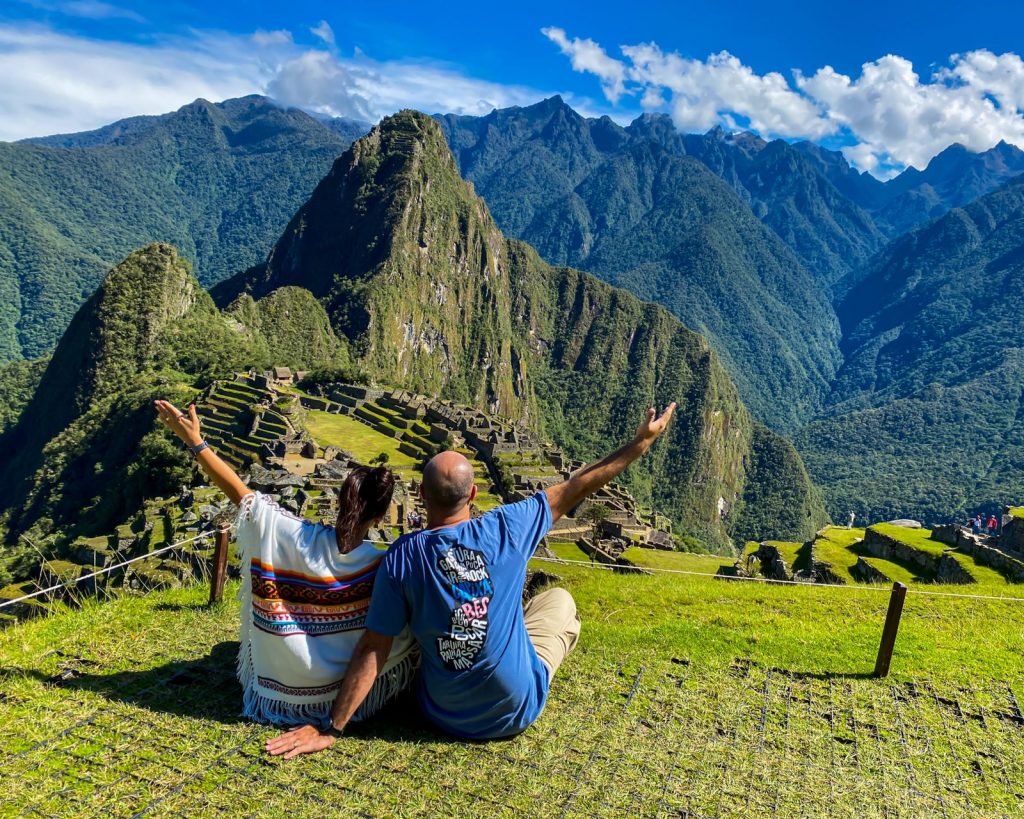
Day 5/ Aguas Calientes, Machu Picchu and return to Cusco
Finally, the big day has arrived! After a great rest, you will be taken to Machu Picchu, leaving from Aguas Calientes, accompanied by a guide who will carry out a visit full of precious information about this Wonder of the World. You’ll see that Machu Picchu’s view is just unique.
Attractions along the way
We know that, with such an adventure, it can seem that the Salkantay Trail is the attraction itself, which would not be wrong to think, but like all destinations in Peru, this route can go beyond your expectations, surprising you even more with visits to some of the most fascinating nature places and Inca sites. Want to know what they are? Well, here we’ll tell you everything you need to know!
Salkantay Mountain
As previously stated, this is one of the tallest mountains in the country, reaching around 6,264 meters above sea level, a figure that demonstrates the scale of Mother Nature’s work, which it erected with great care and patience for thousands of years.
Salkantay snow-capped mountain is located in the middle of the Vilcabamba Mountain Range in the middle of the Andes, having an immense representation within the Andean culture that comes from an Inca belief, which considered this mountain as something sacred, being considered an “Apu”, that is a spirit that brought protection to mountain people and nature.
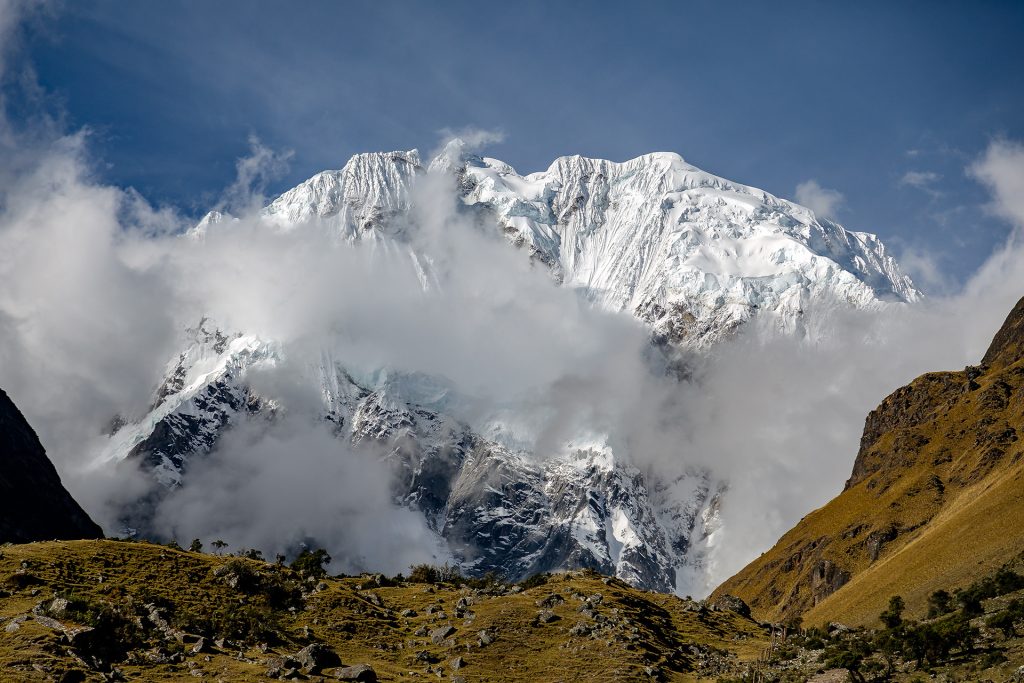
Reaching the top of this mountain is, in fact, a feat achieved by very few people, since the adversities encountered make this achievement something close to impossible. Not for nothing, the name “Salkantay” means “wild mountain” in the Quechua language, which can demonstrate that not only the mountain but all its surroundings are truly indomitable.
A curious fact about this giant is that among the few documented people who reached the top of Salkantay are two Swissmen, namely Bronimann, and Marx, in addition, around the end of the 1970s, Consuelo Bonadiel, a woman of Italian origin, was the first to conquer the summit of this mountain.
Humantay Lake
This is the first attraction faced by brave hikers along the Salkantay Trail. The Humantay Lake, without a doubt, is a gem found amid the challenges imposed by nature to reach it. And we’re not exaggerating in treating her that way!
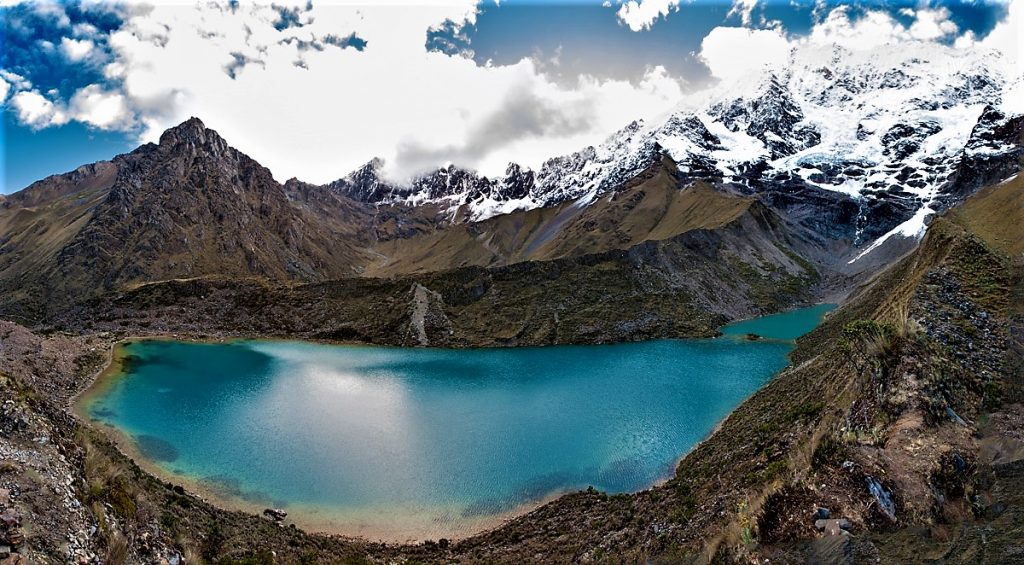
This lagoon is located at the foot of the Salkantay and is a fascinating waterbody in the heights of the Peruvian Andes. The waters of Humantay Lake have a very authentic color, and an intense turquoise blue, which is caused by the concentration of microalgae and minerals in their composition.
To get there, it is necessary to face about 2 hours of walking from the starting point of the trail, in the city of Soraypampa. The attraction is located at 4,200 meters above sea level on a steep path, but all the effort put in to get there is rewarded since this work of nature makes the whole scenario something out of this world.
Cocalmayo Hot Springs
For those who want to relax a little after all the hard work undertaken to complete the entire route to Machu Picchu, it is possible to visit the Cocalmayo Hot Springs, located a few kilometers from the old historic sanctuary, in a district called Santa Teresa.
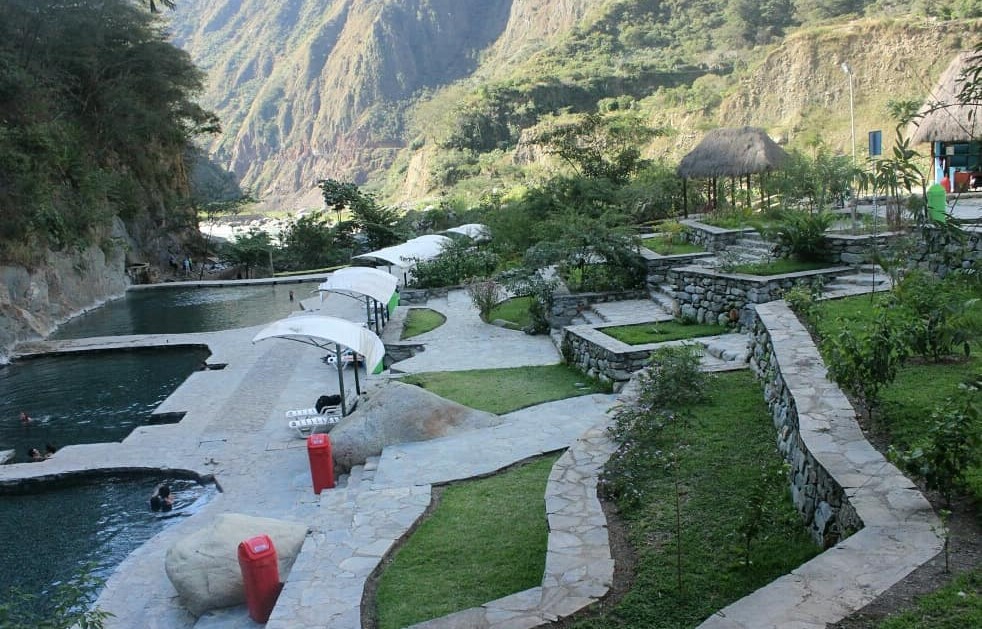
Thermal baths are important for the process of faster muscle recovery, both because of the heat of their waters, which have temperatures that can reach between 30ºC and 44ºC, and because of the concentration of minerals in their composition, which helps in the healing process. Believe it or not, even among the cold of the Andean highlands are the best hot springs you’ve ever seen!
Differences between the Salkantay Trail and Inca Trail
Embarking on an adventure to Machu Picchu through the Andes is an exciting prospect, but choosing between the Salkantay Trail and the Inca Trail can be challenging. Each route offers a unique experience based on duration, altitude, visitor limitations, and other factors. The Salkantay Trail requires more preparation, lasting five days and reaching an altitude of 4,600 meters over 74 kilometers.
In contrast, the Inca Trail varies from two to four days, reaching a most elevation of 4,200 meters and covering 42 kilometers. Both trails are best hiked from July to September for optimal weather. Notably, the Inca Trail is closed in February for maintenance and has a daily limit of 500 visitors, necessitating reservations. The Salkantay Trail, however, has no such restrictions.
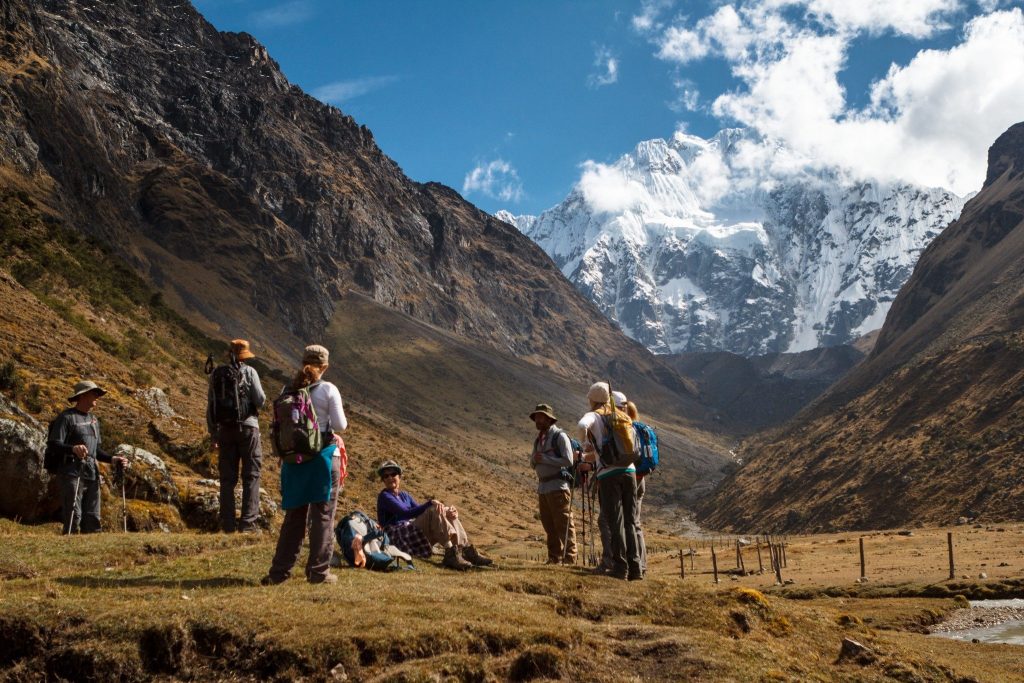
For history enthusiasts, the Inca Trail is ideal, as it passes many archaeological sites. Nature lovers might prefer the Salkantay Trail, which traverses beautiful cloud forests, however, the choice depends on the type of experience you seek, so thorough research is recommended to ensure a memorable journey.
If you have any questions, do not hesitate to contact the Viagens Machu Picchu team to plan and execute together a travel itinerary tailored to you and your interests. Also, discover our packages to Machu Picchu and discover other incredible destinations during your trip through Peru.
Viagens Machu Picchu, journeys that inspire, moments that last.

